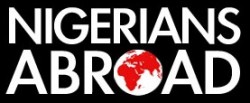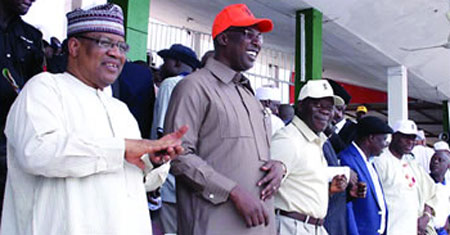By Anthony A Kila
Just in case he is not aware or he is tempted to forget, someone needs to remind the newly appointed Managing Director of the Federal Airports Authority of Nigeria (FAAN), George Uriesi, that he has more than an important job on his hands. In most airports of the world, where improvements have been continuous i.e. small incremental changes are introduced regularly in order to develop quality and maintain efficiency, a newly appointed MD or CEO should be thinking of how to achieve more incremental goals such as reducing costs, increasing value for shareholders, building and maintaining competitive advantage and giving stakeholders a better deal.
That is far from the case of the newly appointed FAAN MD, his position and activities are strategic for the country. His position is strategic because he is in charge of the airports of a country that heavily and openly relies on international investments, partnerships and opinion. As an expert of internationalization and joint ventures, I come across a lot of potential international investors and prospective joint venture partners whose way of saying “ok let us look at this project seriously” is by agreeing to visit the country. When groups of observers or potential investors tell me we should visit the country to see how things are going; I think of their first contact with Nigeria, the airports, and my heart sinks. George Uriesi is not managing just journeys; his position can affect the development and image of his country.
His actions and management practices in general cannot be incremental but revolutionary because what he meets is not a staircase of development on which to run or hop, but a pile of rubbish formed over years of neglect being held together by a long twisted skein of incompetence, lack of passion and a void of dignity. Unlike with most revolutionary changes though, George Uriesi cannot shut down, suspend or just give orders. He and his team need to fully understand what the situation is, they need to go into detail, they need to have a clear idea of where they want to be and how they intend to get there, better still if they can set clear temporal and financial targets. Two advantages of doing all these are that their tasks will become simpler and breakable into slots. Their best source for inspiration will be in history and geography. They need to go back to carefully review what their airports were meant to be and painstakingly study what other airports have become. They also need to realistically look at what their own airports have turned into.
Let us take the Murtala Muhammed International Airport as example. As soon as one gets off an international flight, the first thing that meets you is heat. That heat is not the friendly sun of a tropical country but heat generated in closed areas where heftily paid air-conditioners are not working. While surviving that heat, one then also needs to cope with the stench of something that seems of a mix of human waste, horrible air freshener and baldly diluted all purpose cleaning detergent. For those coming back home, the trick is to focus on the loved ones you are about to see, your first local dish and to quicken your steps. For those in the country for business the reaction is what a hell! Whether you are there for business or for love, the first threat to your life lies on the escalator that leads to immigration desks. I use that airport on average of twenty times a year and rarely have I travelled without seeing someone stumbling or falling.
The immigration queue at the MMA is a carnival of the absurd. Everywhere you go in the world, the queue for nationals is shorter and quicker whilst the one for internationals tends to be longer and slower. In Nigeria it is the other way round. What on earth do those immigration officers want from Nigerians returning home? In most parts of the world immigration will not even stamp your passport when you are returning home. Though not directly part of George Uriesi’s job list, he needs to liaise with immigration office and explain to them that such queues are not good for his airports and help them and Nigeria find a better way to manage things.
Immediately after getting through immigration the next challenge is getting your bags from a slow overcrowded belt. Those who try to get a trolley need to haggle and hustle to get one. All this needs to change; George Uriesi can do a lot if willing and capable. After this piece, I am heading to Amsterdam through the Airport Schiphol, I wish I could take him with me to come and have a closer look at the model after which one of his main airports was built.
So far two good things have happened under George Uriesi’s management : his website has been updated and he has held a town hall meeting with his staff to set a new course. Let us all wish him good luck but keep an eye on him











